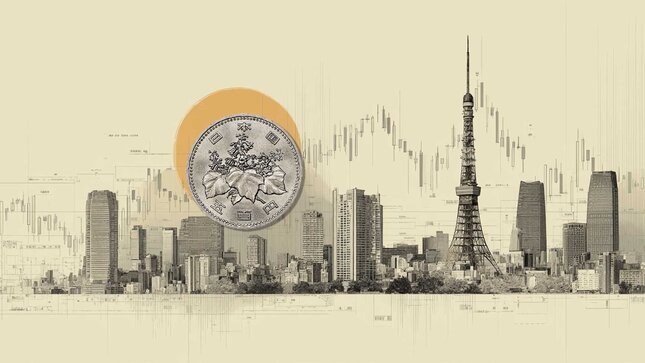Do our mistakes make us smarter? Common sense suggests that we can turn our mistakes into positive learning experiences and improve our performance at a given task. However, it seems that people often do not learn from their mistakes and instead keep repeating them.
Example: you have a losing day trade and decide to widen your stop loss. Deep inside, you know that this is a bad idea and that widening your stop loss out of panic means increasing your risk. Nonetheless, you go on and adjust it. At a later stage, you may even add more funds to sustain it longer. When you first start trading, you may often get trapped into this kind of predicament. Unable to handle an emotional reaction, or being unsure about how to manage a critical moment, makes you more prone to mistakes and wrong decisions.
The issue is that we never make one mistake just once. This is also true for experienced traders or other aspects of our daily life. So why do we repeat the same mistakes?
Your brain’s response to error making
It turns out that there are two main ways our brain responds to making mistakes.
First response:
If your brain interprets it as a wake-up call, your problem-solving skills are activated. Typically, you‘d try to figure out what happened and what are the possible factors that caused the undesired effect. During the next decision, your attention heightens and you may take a longer time to conclude what you should do, a phenomenon known as “post-error slowing”.
Second response:
Alternatively, your brain may perceive the error as a threatening event and shut down. To avoid the discomfort that making a mistake creates, the brain employs an escape strategy. This second brain response is typical of people who pay more attention to positive feedback.
If your brain responds this way, you may be using cognitive biases that hinder you from improving your performance. You could try to rationalise, justify or selectively omit information that indicates you are wrong by attributing the end result to external factors.
In this case, you may think: “I kept adding to my position because I expected the market to reverse, and all indicators confirmed this (confirmation bias). What happened was just a low probability but the market is always unpredictable (self-serving attributional bias-it’s the market, I did everything right).
Who’s more likely to use mistakes as an opportunity for improvement?
If you thought that analysing the “why” and “how” of your mistakes will decrease the likelihood of you repeating them, think again. Although your brain slows down the decision-making process, this doesn’t increase accuracy. If you get too caught up in understanding why you made the mistake or if there is something wrong with your trading ability, you may be distracted from the real task, which is the trading decision you have to make. In other words, the longer you spend in analysing the mistake, the more your “mistake pathways” are reinforced.
So what’s the optimal way to respond to your mistakes?
Counterintuitively, if you don’t want to repeat the same mistake, try not to learn from it. Analysing it excessively will probably cloud your judgement further.
However, don’t turn a blind eye to it either.
Instead, plan the future and set appropriate goals. Recognise the triggers that could instigate the same erroneous reaction from you, and find helpful coping mechanisms.
Let’s take a look at how we could practically do that.
Step 1
Assume that you will make the same mistake again. Then identify all possible conditions that could act as triggers.
Step 2
Identify the automatic thoughts and related emotions that could lead to the trading mistake. An automatic thought is a thought you often don’t realise you are having but it makes you feel and act in a certain way. If your automatic thoughts are unhelpful, you will engage in a behaviour that is probably not helping you either.
Step 3
To prevent future mistakes, we must practice awareness and reframing of our automatic thoughts. Come up with an alternative, helpful thought and replace the ones that are triggering you to act in a way that doesn’t serve you.
Step 4
Now that you are not any longer led by your automatic thinking, what action would you perform?
Please view the table below as an example of how you could start recording your errors and thinking processes in difficult situations.
Trading errors record sheet
You can make this part of your trading journal or use it after an unsuccessful trading attempt. As we mentioned above, dwelling in the past mistakes doesn’t improve you as a trader. Rather, cultivating a heightened awareness of your inner workings as well as proper planning is what makes a difference.
Nothing in this communication contains, or should be considered as containing, an investment advice or an investment recommendation or a solicitation for the purpose of purchase or sale of any financial instrument.
Editors’ Picks

EUR/USD: US Dollar to remain pressured until uncertainty fog dissipates Premium
The EUR/USD pair lost additional ground in the first week of February, settling at around 1.1820. The reversal lost momentum after the pair peaked at 1.2082 in January, its highest since mid-2021.

Gold: Volatility persists in commodity space Premium
After losing more than 8% to end the previous week, Gold (XAU/USD) remained under heavy selling pressure on Monday and dropped toward $4,400. Although XAU/USD staged a decisive rebound afterward, it failed to stabilize above $5,000.

GBP/USD: Pound Sterling tests key support ahead of a big week Premium
The Pound Sterling (GBP) changed course against the US Dollar (USD), with GBP/USD giving up nearly 200 pips in a dramatic correction.

Bitcoin: The worst may be behind us
Bitcoin (BTC) price recovers slightly, trading at $65,000 at the time of writing on Friday, after reaching a low of $60,000 during the early Asian trading session. The Crypto King remained under pressure so far this week, posting three consecutive weeks of losses exceeding 30%.

Three scenarios for Japanese Yen ahead of snap election Premium
The latest polls point to a dominant win for the ruling bloc at the upcoming Japanese snap election. The larger Sanae Takaichi’s mandate, the more investors fear faster implementation of tax cuts and spending plans.
RECOMMENDED LESSONS
Making money in forex is easy if you know how the bankers trade!
I’m often mystified in my educational forex articles why so many traders struggle to make consistent money out of forex trading. The answer has more to do with what they don’t know than what they do know. After working in investment banks for 20 years many of which were as a Chief trader its second knowledge how to extract cash out of the market.
5 Forex News Events You Need To Know
In the fast moving world of currency markets where huge moves can seemingly come from nowhere, it is extremely important for new traders to learn about the various economic indicators and forex news events and releases that shape the markets. Indeed, quickly getting a handle on which data to look out for, what it means, and how to trade it can see new traders quickly become far more profitable and sets up the road to long term success.
Top 10 Chart Patterns Every Trader Should Know
Chart patterns are one of the most effective trading tools for a trader. They are pure price-action, and form on the basis of underlying buying and selling pressure. Chart patterns have a proven track-record, and traders use them to identify continuation or reversal signals, to open positions and identify price targets.
7 Ways to Avoid Forex Scams
The forex industry is recently seeing more and more scams. Here are 7 ways to avoid losing your money in such scams: Forex scams are becoming frequent. Michael Greenberg reports on luxurious expenses, including a submarine bought from the money taken from forex traders. Here’s another report of a forex fraud. So, how can we avoid falling in such forex scams?
What Are the 10 Fatal Mistakes Traders Make
Trading is exciting. Trading is hard. Trading is extremely hard. Some say that it takes more than 10,000 hours to master. Others believe that trading is the way to quick riches. They might be both wrong. What is important to know that no matter how experienced you are, mistakes will be part of the trading process.
The challenge: Timing the market and trader psychology
Successful trading often comes down to timing – entering and exiting trades at the right moments. Yet timing the market is notoriously difficult, largely because human psychology can derail even the best plans. Two powerful emotions in particular – fear and greed – tend to drive trading decisions off course.
-636827241958063180.jpg)


